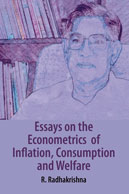Global Perspectives on Foreign Policy of Major Powers
About the Book
<p>The world has become increasingly armed due to the forces of terrorism, threat of ISIS, and cyber attacks. The strategic issues of foreign policy have emerged as a predominant subject at the nation-state level. The end of Cold War did reduce the threat of annihilation, yet a few countries are still eager to start an arms race, making the world more dangerous. Major conflicts could break out with devastating consequences. <br />
</p>
<p>This is the first book in one volume on foreign policy and diplomacy focusing on a composite set of major powers, contributed by eminent practitioners and scholars to serve as an authentic source for study and reflection, ideally suited for foreign policy analysts, international business, and graduate students.<br />
</p>
<p>Individual chapters serve as a roadmap to understanding forces which are moving forward to promote and safeguard their national interest within the international community. Using a flexible framework, leading specialists discuss the strategies employed by major powers, as well as emerging powers to accommodate the rapid global changes. Each chapter describes a discrete context of foreign policy development and adaption, and collectively they summarise a benchmark of global polices in this changing era. </p>
Praise for this book
<p>The book offers an unflinching focus on an important subject dealing with foreign policies of major powers. The authors have put together information which is not readily available in one volume elsewhere and offered their own analysis. The book makes useful reading especially for scholars and practitioners of international relations and diplomacy. Congratulations to the authors and the editor of the book for this valuable edition.<br />
<strong>—K.L. Dalal, Former Secretary, Ministry of External Affairs, <br />
Government of India, New Delhi and Ambassador to Thailand <br />
and Permanent Representative to UNESCAP, Thailand, Ambassador<br />
to Austria, and Permanent Representative to UN European <br />
Headquarters, Austria.</strong></p>
<p><br />
The world has become increasingly and dangerously filled with uncertainty and anxiety. Added to these forces is terrorism, which is causing regional unbalance in the Middle East. In light of this, Dr Ajit Banerjee’s new book on foreign policy of major powers in one volume serves a unique purpose as it provides clear direction for foreign policy experts and graduate students to think ahead and to develop strategies to cope with such complex issues.<br />
<strong>—Violet Drexler, Former Chairperson and Full Professor, <br />
Department of Business, City University of New York, NY. </strong></p>
<p><br />
This book on foreign policy of major powers is itself a major achievement. It succeeds in bringing together in one place, the experiences of some of the major countries of the world in one volume. It is extremely successful in doing so and it is undoubtedly a tribute to the Editor, Dr Ajit Banerjee and the senior practitioners and scholars who participated in this critical work. <br />
<strong>—Selwyn Smith, Honorary Counsel of Barbados to the Bahamas; <br />
Secretary-General, CARICAD, and Former Permanent Secretary, <br />
Ministry of Public Services, Government of Barbados.</strong></p>
<p><br />
As readers of the Press and even scholarly journals will attest, the study of foreign policy is all too often conducted from narrowly sectarian, nationalistic perspectives. Inevitably, the outcome is a slanted view of the world which really helps no one; not even those at the source of this approach. The need for an objective or, even better still, comparative analysis of foreign policy making has never been so pressing. In a global order challenged on many fronts, Global Perspectives of Foreign Policy of Major Powers offers a timely, insightful and very useful guidebook through the maze of rival interests which dominate the world.<br />
<strong>—Demetrios Argyriades, Professor, John Jay College of Criminal <br />
Justice, City University of New York (CUNY), New York; Former UN Official.</strong></p>
About the Author(s) / Editor(s)
Ajit M. Banerjee is a consultant on foreign policy and governance. He was a faculty member of the National Institute of Public Administration, Consultant to Punjab government, and Government of India on management improvement. He was invited by the United Nations (UN) and assigned to the UN Economic Commission for Asia and Far East (ESCAP), as Regional Advisor, to assist Asian and Pacific governments on administrative reform, civil service restructuring, and capacity building for development. This was followed by appointment as Deputy Director of the UN Center for Development Administration. Dr Banerjee was the main architect of the concept of the Regional Center based in Malaysia. He was subsequently appointed Deputy Director of the Center. Later, he was assigned to UN Headquarters in New York as Special Advisor and Principal Coordinator for administrative reform, governance, and foreign policy programmes. He led over 50 UN missions to governments in Asia, Middle East, West Africa, and Caribbean countries dealing with these programmes, and advised on establishing foreign service training institutes. He was also part of a core group of specialists for political negotiations to several governments (Cambodia, Cyprus, Namibia, Haiti, Afghanistan), in peace maintenance and governance. His books include Organization of Government of India, published by Asia Publishing House; Asian Civil Service, published by EROPA; Renewing Governance, published by Tata McGraw-Hill; co-edited Reinventing the United Nations, published by Prentice-Hall; and UN International Civil Service: Perceptions and Realities, published by Academic Foundation. He has contributed numerous technical articles in professional journals. He obtained his MA from Maxwell School, and PhD in Public Policy as a Fellow in Social Sciences of the Rockefeller Foundation. Paul Appleby Award was bestowed on him 2013, for his outstanding service in Public Policy and Management.
Contributors
<p><strong>James A. Baker,</strong> III, has served in senior government positions under three United States Presidents. He served as the nation’s 61st Secretary of State from January 1989 through August 1992 under President George H.W. Bush. During his tenure at the State Department, Mr Baker travelled to 90 foreign countries as the US confronted the unprecedented challenges and opportunities of the post-Cold War era. He served as the 67th Secretary of the Treasury from 1985 to 1988 under President Ronald Reagan. As Treasury Secretary, he was also Chairman of the President’s Economic Policy Council. From 1981 to 1985, he served as White House Chief of Staff to President Reagan. His record of public service began in 1975 as Under Secretary of Commerce to President Gerald Ford. It concluded with his service as White House Chief of Staff and Senior Counselor to President Bush from August 1992 to January 1993. He is presently a senior partner in the law firm of Baker Botts. </p>
<p><br />
<strong>Tim Oliver</strong> is a Senior Lecturer in the Department of Defence and International Affairs at the Royal Military Academy Sandhurst, but writes here in a personal capacity. He is also a non-resident fellow of the Center for Transatlantic Relations of the Johns Hopkins University Paul H. Nitze School of Advanced International Studies, Washington D.C. Dr Oliver has worked in the House of Lords, the European Parliament, the German Institute for International and Security Affairs (SWP), RAND Corporation, and taught at University College London and London School of Economics</p>
<p><br />
<strong>Jeffrey Mankoff</strong> is Deputy Director and Fellow with the CSIS Russia and Eurasia Program. He is the author of Russian Foreign Policy: The Return of Great Power Politics (Rowman & Littlefield, 2009) and a frequent commentator on international security, Russian foreign policy, regional security in the Caucasus and Central Asia, ethnic conflict, and energy security. Before coming to CSIS, he served as an adviser on US-Russia relations at the US Department of State as a Council on Foreign Relations International Affairs Fellow. From 2008 to 2010, he was associate director of International Security Studies at Yale University and an adjunct fellow at the Council on Foreign Relations. In addition to his policy research, he teaches courses on international security and Central Asia at Georgetown University’s School of Foreign Service. Dr Mankoff has held academic fellowships at Harvard, Yale, and Moscow State Universities. He holds dual BAs in international studies and Russian from the University of Oklahoma and an MA, MPhil, and PhD in diplomatic history from Yale.</p>
<p><br />
<strong>Quansheng Zhao </strong>is Professor of international relations and Chair of the Asian Studies Program Research Council at American University in Washington, D.C. A specialist in international relations and comparative politics focusing on East Asia, he is the author of Interpreting Chinese Foreign Policy (Oxford University Press, winner of the Best Academic Book Award by the Ministry of Culture of the Republic of Korea), and Japanese Policymaking (Oxford University Press/Praeger, selected as “Outstanding Academic Book” by Choice). His most recent edited book is Managing the China Challenge: Perspectives from the Globe (2009). His books have been translated into Chinese, Japanese, and Korean. In 2010, Dr Zhao received Sumiya Mikio Award as the first place winner for best essays in Japanese studies selected by the Chinese Academy of Social Sciences. From 1993-2009, he was a Research Associate at the Fairbank Center for East Asian Research of Harvard University; and from 1999-2008, he was Division Director of Comparative and Regional Studies at American University. He received his BA from Peking University, and MA and PhD from the University of California at Berkeley. He is a member of the National Committee on US-China Relations. He has also testified at the US Congress on China’s high-speed railway system, and served as a consultant for the United Nations. </p>
<p><br />
<strong>Steven Philip Kramer </strong>has been Professor of Grand Strategy at the Industrial College of the Armed Forces, National Defense University in Washington, D.C. since 1992. He was also Policy Advisor to the Assistant Secretary of State for European Affairs from 1996-2002, where he focused on long-term issues and on issues related to France. Dr Kramer has taught Contemporary European History and Government at the University of New Mexico and Georgetown University, served as a Council of Foreign Relations Fellow in the US Department of State, directed the Face to Face program of the Carnegie Endowment for International Peace, was the John J. McCloy Distinguished Fellow in Residence at the American Institute for Contemporary German Studies and was a Fellow at the Institute for the Study of Diplomacy at Georgetown. He has written widely on European politics and culture. His most recent books are: Does France Still Count: The French Role in the New Europe (Praeger/CSIS, 1994) and Trouble in Paradise, Europe in the 21st Century (NDU Press 1996), co-authored with Prof Irene Kyriakopoulos. He has also written Socialism in Western Europe: The Experience of a Generation and a biography of the cineaste Abel Gance. He received his BA in history from Brandeis University and his PhD from Princeton University.</p>
<p><br />
<strong>Dieter M. Dettke</strong> is currently Adjunct Professor at Georgetown University teaching a course on “Europe and Russia: The New Security Dynamics and the Atlantic Alliance” and on “The Politics of European Security” at Georgetown University’s Center for Peace and Security Studies as well as at the BMW Center for German and European Studies. He served as the US Representative and Executive Director of the Friedrich Ebert Foundation in Washington from 1985, until 2006 managing a comprehensive programme of Transatlantic cooperation. In 2006, he joined the German Marshall Fund of the US as a Transatlantic Fellow and from September 2006 to June 2007 he was a Fellow at the Woodrow Wilson International Center for Scholars. He is author of Germany Says ‘No’: The Iraq War and the Future of German Foreign and Security Policy, and Allianz im Wandel, a book on European-American security relations and super power bilateralism. He also served as editor and author of The Spirit of the Berlin Republic, a book about Germany after unification. His most recent publication is Hungary’s Jobbik Party, the Challenge of European Ethno-Nationalism and the Future of the European Project (published in 2014 by the Center for International Relations in Warsaw). Dr Dettke is a foreign and security policy specialist, author and editor of numerous publications on German, European and US foreign and security issues. He studied law and political science in Bonn and Berlin, Germany and Strasbourg, France and was a Fulbright Scholar at the University of Washington in Seattle in 1967-68. </p>
<p><br />
<strong>Takashi Inoguchi,</strong> Professor Emeritus, University of Tokyo; President and the Chairman of the Board, University of Niigata Prefecture. Takashi Inoguchi became President and Chairman of the Governing Board, University of Niigata Prefecture in 2009. He is also Professor Emeritus, University of Tokyo and President, the Asian Consortium for Political Research. He served as Assistant Secretary General of the United Nations assigned to the UN University Headquarters (1995-1997) and as President, the Japanese Association of International Relations (2000-2002). Amongst the latest of which are American Democracy Promotion (Oxford University Press, 2000), Reinventing the Alliance (Palgrave Macmillan, 2004), Political Cultures in Asia and Europe (Routledge, 2006), The Uses of Institutions (Palgrave Macmillan, 2007), Citizens and the State (Routledge, 2009), Globalization, the State and Public Opinion (Routledge, 2009), Japanese Politics Today (Palgrave Macmillan, 2011), The US-Japan Security Alliance (Palgrave Macmillan, 2011). He is Director of the AsiaBarometer project since 2002 and the founding editors of two journals, Japanese Journal of Political Science (Cambridge University Press) and International Relations of the Asia Pacific (Oxford University Press).</p>
<p><br />
<strong>Rohan Mukherjee</strong> is a doctoral candidate in the Department of Politics at Princeton University. His writings on Indian foreign policy and security have appeared in journals such as Survival, Global Governance, International Affairs, and International Journal. In 2014-15, he is also a Visiting Fellow at the United Nations University (UNU) in Tokyo, working on an edited volume titled: Deepening the Japan-India Partnership.</p>
<p><br />
<strong>Sartaj Aziz</strong> has served as Pakistan’s Finance Minister from 1990 to 1993 and again from February 1997 to July 1998. He was Pakistan’s Foreign Minister from August 1998 to October 1999. At present, he is Advisor to the Prime Minister of Pakistan on National Security and Foreign Affairs. He obtained a Bachelor’s degree in commerce from the Punjab University in 1949. He proceeded to join the civil service of the state of Pakistan in 1951. Later, he travelled to the US and earned a Master’s degree in development economics from Harvard University in 1963.”</p>
<p><br />
<strong>Aparna Pande</strong> is a Research Fellow and Director of Hudson Institute’s Initiative on the Future of India and South Asia. After completing her MA from St. Stephen’s College, Delhi University, and MPhil in international relations from Jawaharlal Nehru University, she received a Doctorate in political science from Boston University. She has authored the book titled Explaining Pakistan’s Foreign Policy: Escaping India (Routledge, 2011). Her major field of interest is South Asia with a special focus on India, Pakistan, foreign policy, security studies, religion in politics, and political Islam. Pande testified before the US Congress (House Foreign Affairs Sub-committee on Oversight and Investigations). She has contributed articles to The Melbourne Journal of Politics and Current Trends in Islamist Ideology.</p>
<p><br />
<strong>Natana J. DeLong-Bas</strong> is a leading expert on Wahhabism, Salafism, jihadism, terrorism and extremism, particularly Al-Qaida and ISIS, and women and gender issues in the Islamic world. She is a consultant to both the US and international governments, as well as international corporations and the media. She serves on the Academic Council of the Prince Alwaleed bin Talal Center for Muslim-Christian Understanding at Georgetown University, Washington DC, and the Board of Directors for the American Council for the Study of Islamic Societies. Dr DeLong-Bas is Visiting Assistant Professor of Comparative Theology and Islamic Civilizations and Societies at Boston College, Chestnut Hill, MA. She is the author of Wahhabi Islam: From Revival and Reform to Global Jihad (Oxford University Press, rev. ed. 2008; named 1 of the 5 best for understanding Islam by the Wall Street Journal), Notable Muslims: Muslim Builders of World Civilization and Culture (OneWorld, 2006), and Women in Muslim Family Law (with John L. Esposito, Syracuse University Press, second edition, 2001). She is Editor-in-Chief of The Oxford Encyclopedia of Islam and Women (Oxford University Press, 2013).</p>
<p><br />
<strong>Yoav J. Tenembaum</strong> is a lecturer at the graduate Diplomacy Programme, Political Science department, Tel Aviv University, Israel. He has been teaching the core, mandatory course on The Shaping of Foreign Policy and Decision-Making. He has taught courses on Conflict Resolution, International Crises and on the Role of the National Security Advisor of the US President in Shaping Foreign Policy. He is Argentinean-born and has lived in various countries, including Argentina, Britain, the US (New York) and Israel. He holds a Doctorate degree in modern history from Oxford University and a Master’s degree in international relations from Cambridge University. He read for his BA degree in history at Tel Aviv University, specialising in modern (diplomatic) history. Dr Tenembaum has been invited to deliver lectures on Israeli foreign policy in several countries on diverse academic and professional forums. Articles of his on diplomacy, international relations and foreign policy have been published in various journals, magazines and newspapers in the US, Britain, Argentina, Uruguay, Spain and Israel.</p>
<p><br />
<strong>Leila Bijos</strong> has a PhD in Sociology, a Master’s degree in international relations (technical cooperation), specialisation in political science, specialisation in foreign trade and third sector activities. She is a professor and researcher at the Master’s degree in law at the Catholic University of Brasilia, Coordinator of the Internationalization of Higher Education at the Law School, Director of the Study Group Laboratory of International Politics, and member of Cathedra of UNESCO for Youth, Education and Society, where she has been teaching for 14 years and has been the advisor of more than 40 graduate level dissertations. She has been a visiting professor at the University of Hyderabad (India), University of Loja (Ecuador); a visiting researcher at the University of Tsukuba (Japan), University of Asia and the Pacific, Manila (Philippines); visiting scholar at the Center for Iberian and Latin American Studies, University of California, San Diego (USA); invited speaker at the Zentrum für Interdisziplinäre Forschung, University of Bielefeld (Germany), New York State University, Stony Brook (USA), Institute of Political and International Studies (IPIS), University of Tehran (Iran), University of Sevilla (Spain), University of Panama (Panama); and Research Fellow at the Annual Bank Conference on Development Economics (ABCDE). She has authored more than 50 publications, including Mulheres Sul Americanas: O Presente Mais que Imperfeito (2013), Discriminação Étnica Racial: “Nikkeis” Brasileiros no Japão, and A Excelência da Democracia Brasileira e o Apoio da Sociedade Civil (2013); besides co-authoring books on migration, regional integration, cultural diplomacy, and women in Latin America. </p>
<p><br />
<strong>Tseliso Thipanyane</strong> was former Chief Executive Officer of the South African Human Rights Commission. An independent human rights consultant on human rights, democracy and good governance, an adjunct law lecturer on African human rights systems at Columbia University School of Law, an adjunct lecturer on African politics at Ramapo College of New Jersey, and a co-producer on human rights at AfrobeatRadio (WBAI 99.5FM New York). Advocate of the High Courts of South Africa and Lesotho.</p>



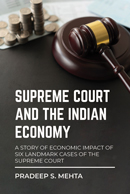



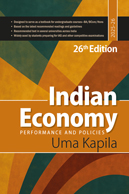
-web-194.jpg)
-front.jpg)
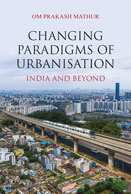





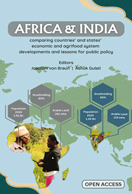
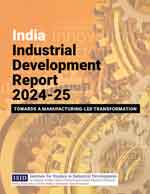
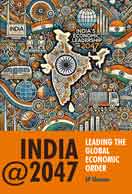
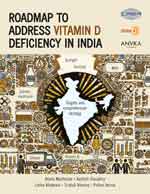
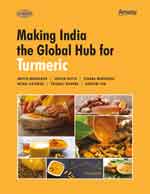
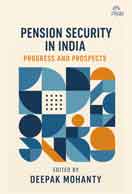
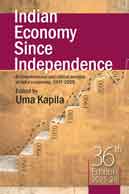
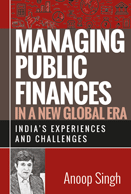

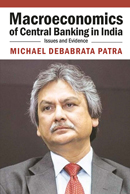















-COVER-web-194.jpg)





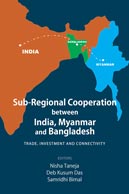






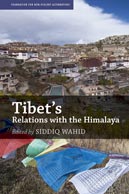
















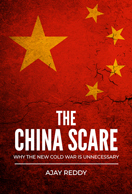
.jpg)






